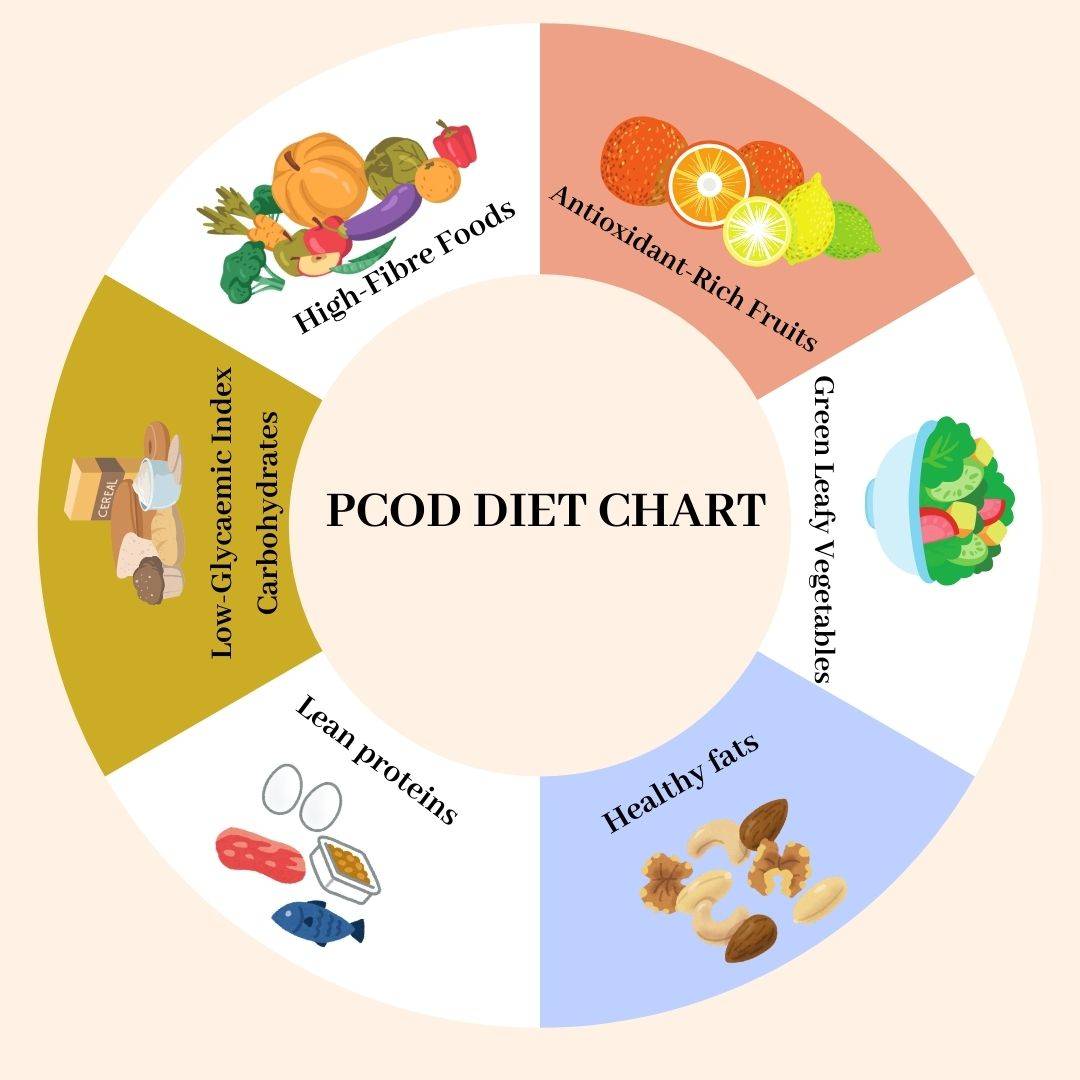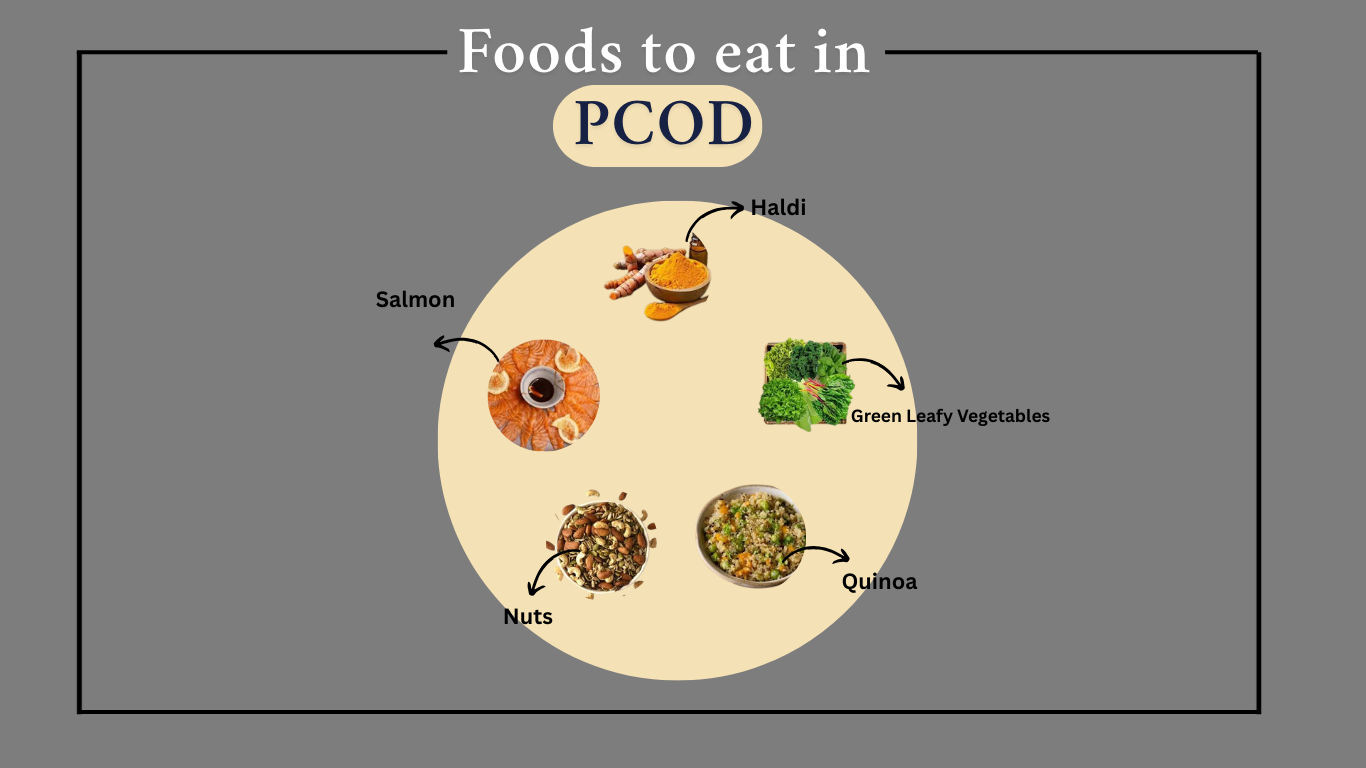
PCOD Diet Chart
PCOD is a disorder linked to an imbalance in hormones. It has the potential to significantly affect someone's physical and mental health. Patients with PCOD may have symptoms like acne, the growth of facial hair, and other problems that could affect their appearance. Pregnancy prospects may also be impacted. PCOD has now become a lifestyle disease and every one woman in five is affected by PCOD nowadays. How exactly is PCOD caused is unknown stress, obesity, poor lifestyle, consuming unhealthy diet can be some reasons that trigger PCOD. Recognising it early and timely can help you keep your hormones in balance, as its long-term effects can lead to complications like heart disease and diabetes.
Symptoms of PCOD and how can diet and exercise help
Following are the symptoms or the consequences faced by woman when suffering from PCOD include,- Changes in weight and trouble losing weight
- Active acne on face, chest and upper back
- Hair loss
- Irregular menstruation (Oligomenorrhea), heavy menstruation (Menorrhagia) or absence of menstruation (Amenorrhea)
- Fatigue
- Trouble conceiving
- Production of androgen increases
Foods to include in PCOD diet chart:
- High-Fibre Foods: High-fibre foods help reducing cholesterol levels, maintaining a healthy body weight. With PCOD you develop insulin resistance and high fibre foods can help in stabilising blood sugar levels. High fibre food includes legumes, lentils, beans, whole grains like brown rice and vegetables like broccoli, spinach etc.
- Low-Glycaemic Index Carbohydrates: Low-glycaemic index foods are those which are less likely to raise blood sugar levels in your body. PCOD can increase the levels of blood sugar in your body, so to keep that in control taking low GI carbohydrates is beneficial. Low GI foods include soy products, beans, fruit, milk, pasta, grainy bread, porridge (oats) and lentils.
- Antioxidant-Rich Fruits: PCOD comes with inflammation and oxidative stress and to overcome that taking anti-oxidants rich fruits is very important as these help in natural detoxification of your body. These include berries, cherries, dark red fruits and grapes etc.
- Green Leafy Vegetables: Green leafy vegetables should be a part of PCOD diet as they maintain hormonal balance of your body. These vegetables include kale, spinach and broccoli and are good sources of vitamin K, iron and folate.
- Healthy fats: Nuts like walnuts, almonds, pine nuts and pistachios are source of healthy fats and help in maintaining a good health. Like almonds help in decreasing levels of androgen in your body. Avocados and seeds like flax seeds and chia seeds can support hormone balancing.
- Lean proteins: Including lean meats in your diet like fish (salmon and tuna etc.), tofu, skinless poultry, these are a good source of proteins, iron, zinc and vitamin B12. These are easily absorbed in the body and help in managing PCOD and are extremely beneficial for menstruating woman particularly in their adolescents.
Foods to avoid in PCOD:
When having PCOD it is advised not to skip meals and do not take heavy meals at a time because skipping meals can lead to overeating, which can lead to issues like obesity which is not good for your health. Here are some of the foods which should not be consumed if you are suffering from PCOD as it can make your symptoms worse.- Pastries, cakes, white bread, and other products containing refined carbohydrates (Maida)
- Fast-Food and fried foods, including burgers, pizza, and fries
- meat that has been processed
- Fruits high in sugar, like bananas, mangoes, Jack fruit, etc.
- Pork and red meat






